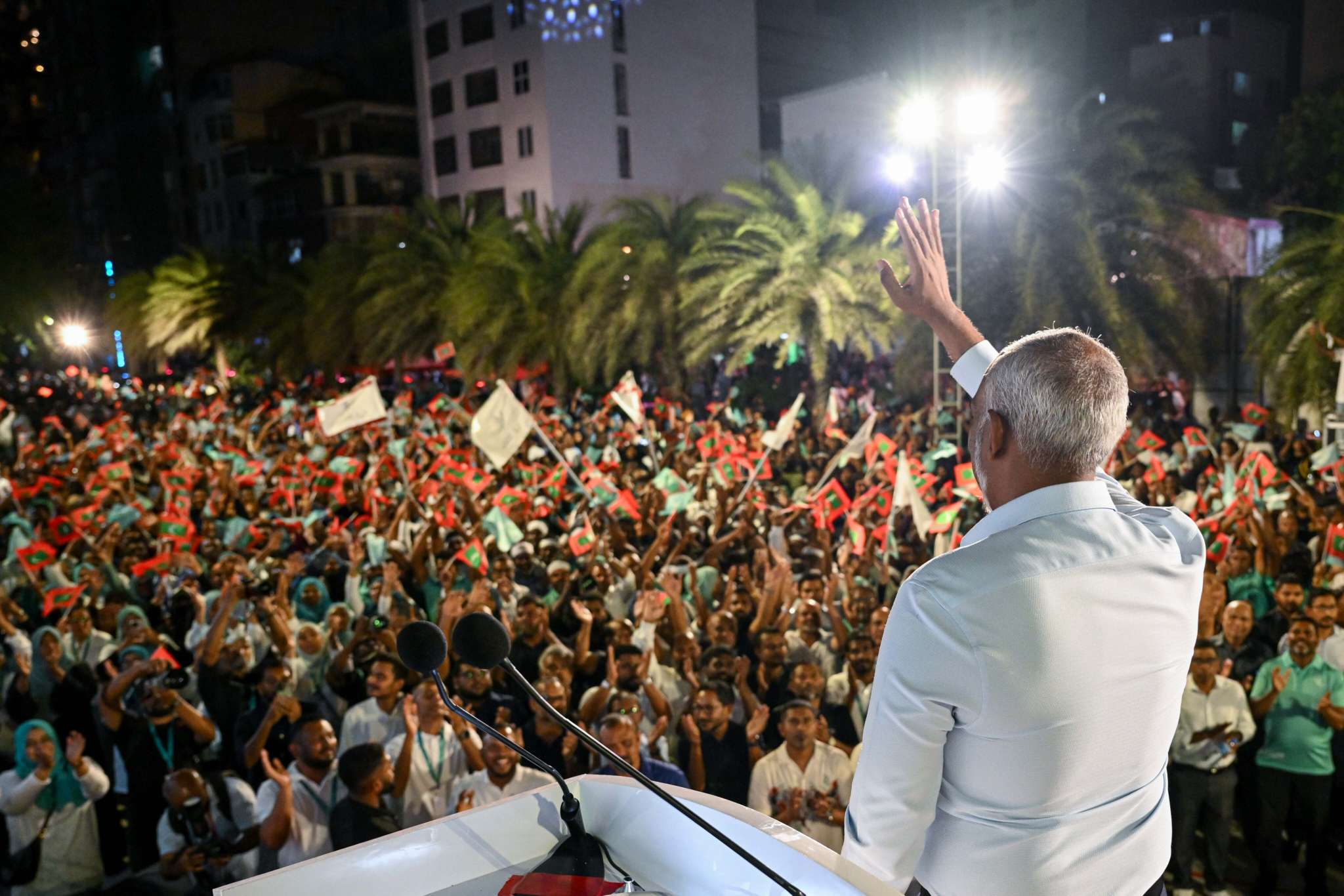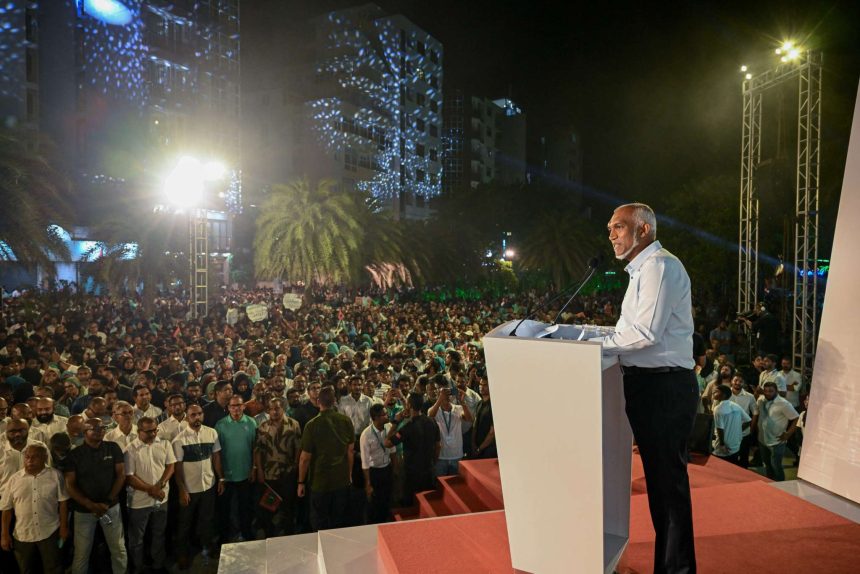Last night, President Dr Mohamed Muizzu announced a major policy initiative to empower workers across the tourism, fisheries and construction sectors by establishing new Presidential Advisory Panels that will allow frontline employees to directly influence national decision making. Speaking at the historic anniversary rally attended by more than thirteen thousand citizens, the President said these panels will become a permanent platform for workers to raise issues, propose solutions and help shape policy direction in three of the most critical engines of the Maldivian economy.

According to the President, the idea behind the advisory panels is straightforward and transformative. For decades, national economic policies were influenced almost entirely by senior officials, political leaders and institutional heads. Workers at the operational heart of these industries, such as resort service staff, boat crews, fishermen, dive instructors, carpenters and site supervisors, rarely had a channel to convey the realities they face or the reforms they need. President Muizzu stated that this gap has contributed to recurring challenges, inefficiencies and missed opportunities across the economy.
The new advisory panels will change that reality. Each panel will be composed of workers selected from all levels of their respective sectors, ensuring that the President receives unfiltered information directly from the field. Resort room attendants, guest relations officers, chefs, fishermen, crew members, construction technicians, engineers and safety workers will all be eligible to serve. The President said this approach ensures that industry reforms are shaped by those who understand operations at the closest level.
Tourism remains the Maldives’ largest economic sector, contributing more than 28 percent of GDP and nearly 80 percent of foreign exchange earnings. With more than sixty thousand workers employed in resorts, guesthouses and liveaboards, the President said workers in this field deserve a direct role in the decisions that affect their livelihoods, welfare and future opportunities. He added that the tourism advisory panel will provide strategic insight on issues such as worker housing, salary fairness, skill development, island connectivity, safety standards and destination competitiveness.
The fisheries panel will focus on modernising the traditional tuna industry at a time when global markets are shifting toward sustainability and traceability. Maldives pole and line fishing is internationally recognised as one of the most environmentally responsible methods. The President said he will rely on fishermen from every atoll to advise on pricing challenges, fuel costs, ice availability, vessel safety and international certifications that can boost export value.
For construction, one of the fastest growing sectors due to major national housing and infrastructure projects, the President said the advisory panel will help identify labour shortages, technical gaps, skills needed for new building technologies and ways to ensure Maldivian youth are trained and prioritised in major developments. This includes upcoming mega projects in Rasmaalé, Hulhumalé, Giraavaru Falhu and regional urban centres.
The President said the panels will not be ceremonial. They will meet directly with him, discuss real challenges on the ground and provide recommendations that influence government policy, national budgets and sector specific regulations. He called this a breakthrough in democratic participation that brings the voices of ordinary workers to the highest level of decision making.
He said the panels reflect the government’s commitment to equality and fairness, ensuring that policy benefits reach citizens at every level, not only business owners and elites. The President assured workers that this platform will protect their rights, elevate their concerns and unlock new opportunities for upward mobility.
As the rally continued, thousands applauded the initiative, seeing it as a significant step in placing Maldivian workers at the centre of national progress. Supporters said the panels demonstrate that the government’s development vision is not only national in scale but personal in impact, recognising the contribution of every individual who powers the country’s economy.




